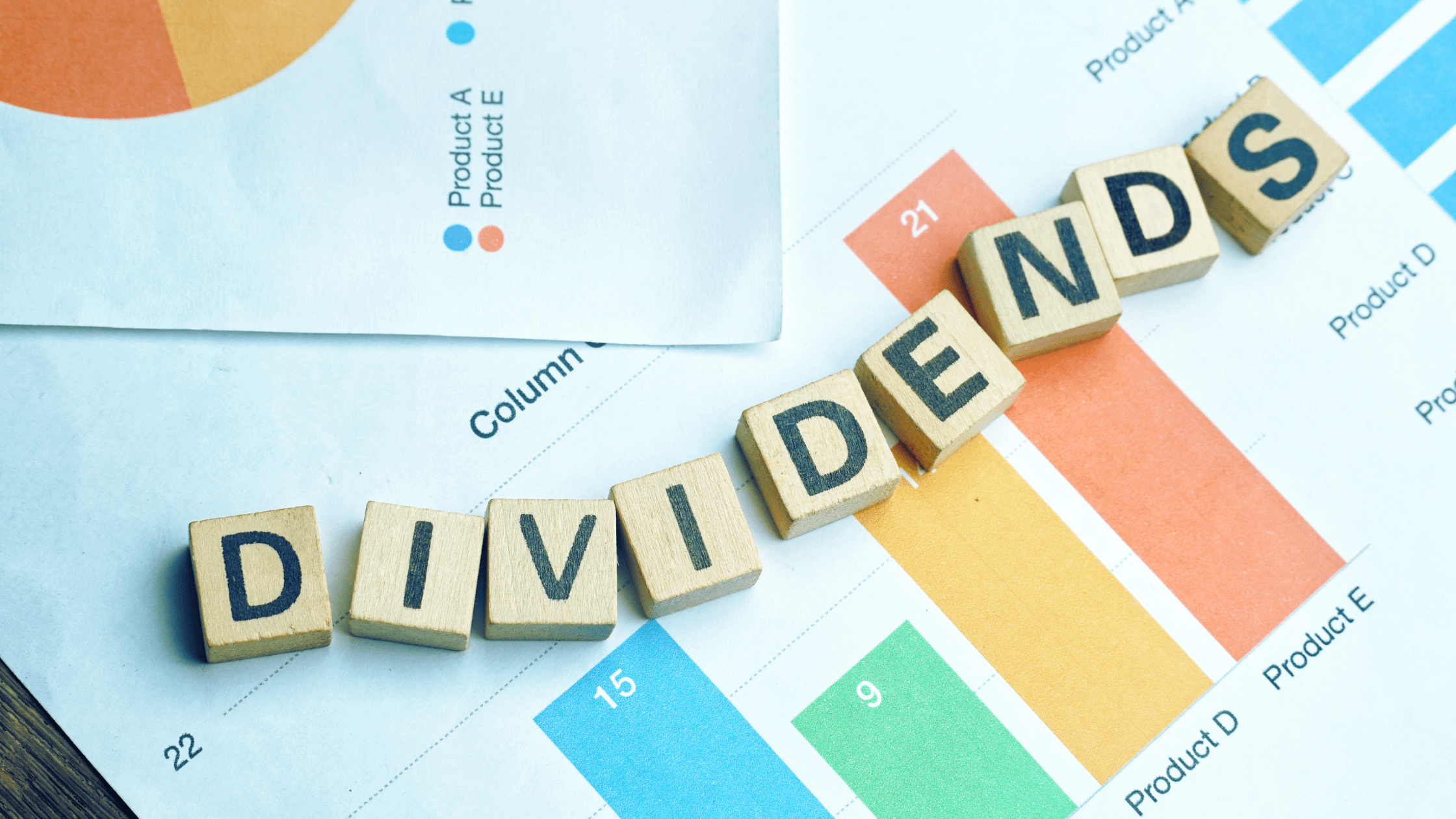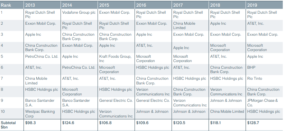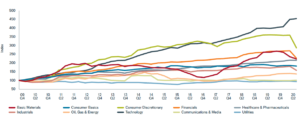Do Technology Stocks Pay Good Dividends?
October 24, 2020

Throughout 2020 and periods of volatility, it’s been somewhat odd to see that the “Big Tech” stocks are now considered defensive assets.
Generally characterised as the “FAANG” – after Facebook Inc (NASDAQ: FB), Apple Inc (NASDAQ: AAPL), Amazon.com Inc (NASDAQ: AMZN), Netflix Inc (NASDAQ: NFLX), and Google, although it’s actually Alphabet Inc (NASDAQ: GOOGL) – these companies are cash-generating machines.
Yet investors have not traditionally thought of the FAANGs as dividend-paying companies. But that’s a huge oversight, in my opinion.
It’s also become more of a relevant issue as we grapple with the bigger question of whether US technology stocks are “overvalued” or whether they actually provide a competitive moat for investors.
For me, it’s the latter. One of the big reasons for this are its reliable free cash flows and fortress-like balance sheets flush with cash.
That’s only half the story, though. Many technology companies are able to pay a dividend but don’t pay one. That’s because they think that would be an admission that they’ve stopped growing.
But for some of the tech giants, I believe the payment of dividends is an important part of a larger long-term theme that we should pay closer attention to.
Printing money for shareholders
The release of the Janus Henderson Global Dividend Index (JHGDI) for the second quarter of 2020 highlighted what we already knew; that technology companies continue to have the cash to pay shareholders a dividend.
That’s in spite of the worst economic hit to the US economy in decades. What’s more, it looks to be the start of a multi-year shift towards technology dominating overall dividend payouts.
So, first off, what should we as investors look for in dividend-paying companies? Strong positive free cash flow. Increasing earnings per share (EPS). High Return on Equity (ROE). Low dividend payout ratio. Lots of cash.
Unsurprisingly, the two big tech companies that pay sizeable absolute dividends – Microsoft Corporation (NASDAQ: MSFT) and Apple Inc (NASDAQ: AAPL) – have all those attributes.
The fall of the dividend stalwarts
In fact, probably unbeknownst to investors, both Microsoft and Apple have been consistently in the top five payers of dividends, globally, in absolute terms since 2016. In 2013, Apple was the only technology company in the top 10 (see below).
World’s biggest dividend payers

Source: Janus Henderson Global Dividend Index, Edition 25 as of February 2020
With the massive cuts in dividends by energy companies such as Royal Dutch Shell Plc (LON: RDSA) (AMS: RDSA), which cut its dividend earlier this year for the first time since World War II, the table for full-year 2020 is going to look a lot different.
Even Exxon Mobil Corp (NYSE: XOM), currently yielding a dangerously-high 10% and using debt to finance its dividend, is likely to see some sort of reckoning before the year is out.
It’s been indicative of the unsustainability of dividend payments in many sectors of the stock market, particularly energy and financials.
Watching dividend cuts for financials so far this year – namely big European banks – has been a “head-in-your-hands” type of experience for shareholders.
HSBC Holdings plc (SEHK: 5) suspended its dividend completely back in April while dividends of the big banks in the US and China (despite being less impacted by Covid-19) are unlikely to see higher payouts any time soon.
In fact, in the second quarter of 2020 financials saw the biggest absolute drop in dividends – down US$54 billion (or a whopping 40%) from the same quarter in 2019.
So, that leaves technology to pick up the slack. It’s done that with aplomb.
Technology will dominate the future of dividends
It’s not hard to see why technology has got the potential to own the dividend space. As The Economist opined back in 2017, “data is the new oil”.
It’s an apt analogy because technology giants, who in effect control this data, are also likely to displace energy giants as the de facto dividend plays.
It may not be any time soon – both Apple and Microsoft both yield under 1% – but the growth rates in their dividends are something investors should be impressed with.
For example, Microsoft just recently announced it was going to be raising its dividend per share (DPS) by around 10% to 56 US cents from 51 US cents previously.
Microsoft has been consistently paying a dividend since it first paid one out in 2003. Meanwhile, over the last five years Apple has grown its dividend by an average of around 10% per year.
Add in other global tech dividend payers that are hiking payouts fast – think Taiwan Semiconductor Manufacturing Co (NYSE: TSM) (TSE: 2330) and Samsung Electronics Co Ltd (KRX: 005930) – and it makes sense that technology is currently dominating the growth of dividends (see below).
JHGDI – Total dividends by industry

Janus Henderson Global Dividend Index, Edition 27 as of August 2020
At this point, you’re probably wondering about the other big tech firms that don’t pay any dividends. Primarily, these have been run by the founders, such as Jeff Bezos at Amazon or Mark Zuckerberg at Facebook, and they’ve been loath to pay out excess cash flows as dividends.
There are a multitude of reasons for that (for one, the American preference for share buy backs due to tax considerations) but it’s also – rightly or wrongly – seen as an admission that you’re a “middle-aged” tech company if you do.
The ongoing success of Apple and Microsoft, under professional leadership teams that no longer contain the founder, is slowly dismissing that myth.
Even in Asia, Tencent Holdings Ltd (SEHK: 700) pays a small dividend that’s growing fast yet is still an innovative tech company.
Bet on the cash flows of the future
For dividend hunters, technology obviously doesn’t come immediately to mind. Yet these companies are generating boatloads of cash which they can’t reinvest fast enough into their businesses.
This is likely to eventually change at some point in the future. Founder-led firms such as Amazon or Facebook may feel the heat from shareholders demanding better allocation of vast amounts of capital.
Either way, the trend is as clear as night and day; technology companies in the US (and globally) will continue to see their influence on global dividend payouts increase over time.
For long-term investors with a view to receiving passive income in 10 to 15 years, investing in some of these giant cash-generating tech names today could end up being a prescient dividend strategy.
This material is categorised as non-independent for the purposes of CGS-CIMB Securities (Singapore) Pte. Ltd. and its affiliates (collectively “CGS-CIMB”) and therefore does not provide an impartial or objective assessment of the subject matter and does not constitute independent research. Consequently, this material has not been prepared in accordance with legal requirements designed to promote the independence of research. Therefore, this material is considered a marketing communication.
This material is general in nature and has been prepared for information purposes only. It is intended for circulation amongst CGS-CIMB’s clients generally and does not have regard to the specific investment objectives, financial situation and the particular needs of any specific person who may receive this material. The information and opinions in this material are not and should not be construed or considered as an offer, recommendation or solicitation to buy or sell the subject securities, derivative contracts, related investments or other financial instruments or any derivative instrument, or any rights pertaining thereto. CGS-CIMB have not, and will not accept any obligation to check or ensure the adequacy, accuracy, completeness, reliability or fairness of any information and opinion contained in this material. CGS-CIMB shall not be liable in any manner whatsoever for any consequences (including but not limited to any direct, indirect or consequential losses, loss of profits and damages) of any reliance thereon or usage thereof.

Tim Phillips
Tim, based in Singapore but from Hong Kong, caught the investing bug as a teenager and is a passionate advocate of responsible long-term investing as a great way to build wealth.
He has worked in various content roles at Schroders and the Motley Fool, with a focus on Asian stocks, but believes in buying great businesses – wherever they may be. He is also a certified SGX Academy Trainer.
In his spare time, Tim enjoys running after his two young sons, playing football and practicing yoga.







